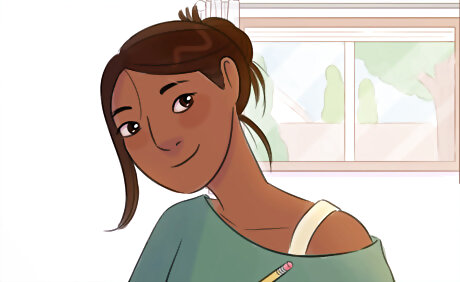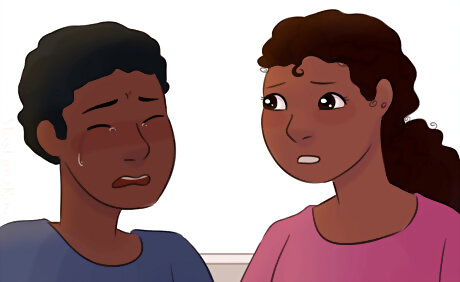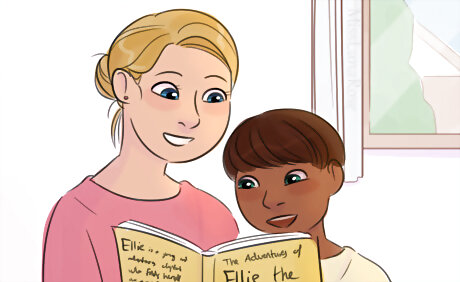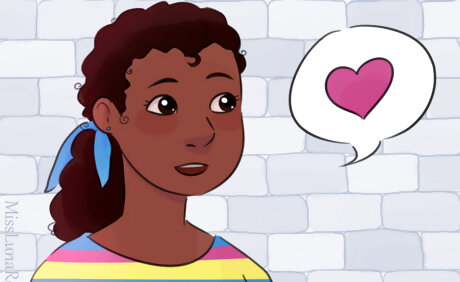
views
Practicing Good Habits

Stay clean. Shower or bathe often. Having clean skin and gently-washed hair will bring out your natural beauty. Once you hit puberty, it's good to wash your face every morning, if you can. Use a facial soap or wipe that won't clog your pores. After bathing, apply deodorant to help you stay fresh. If one type of deodorant doesn't work, try another kind.

Follow your own personal style. Wear comfortable clothes that make you smile. If you wear things that help you express yourself and feel confident, your attitude will make you more attractive. Don't feel like you have to blend in, or wear brand-name or popular clothes. It's okay to look different.

Try your best at school. Get involved in a club or support a cause. Being a brainy babe is great, as you are on the right track to a beautiful future. Remember that few people are good at something on the first try. If you don't do well at something, it's probably because you don't have enough practice! Try again. Ask for help if you need it. Avoid bragging about your achievements. People tend to feel upset if they start comparing themselves to others too much. While you should be honest if people ask, don't rub their noses in it.

Love who you are! You don't have to be a perfect girl, but you do need to love who you are. Just like your favorite characters in stories, you'll have flaws, but you're also growing and doing your best. If you struggle with low self esteem, you can borrow your confidence from your favorite celebrity, or God, if that is what you believe in. If you have low self esteem, try treating yourself the same way you'd treat a good friend. If you're struggling, ask yourself "What would I say to a friend who was struggling this way?" If you really struggle with loving yourself, talk to someone, like a guidance counselor or a trusted adult. And if you think you're showing signs of an illness like depression, see a doctor as soon as you can.

Take good care of your body and mind. It's hard to be fun and sweet if you're feeling exhausted, too stressed, or burned out. Make time to do something fun or restorative (whatever that means to you) each day. If you don't feel right, pay attention to that feeling, and see how you could help yourself feel better. You have to take care of yourself before you are ready to be a good helper to others. You can't pour from an empty cup. Similarly, you can't be very helpful to other people if you are feeling drained. Spend time on self care, and say "no" to things if you don't have the energy for them. Fulfill your basic needs first. You can go back to helping others once you're feeling balanced and at peace. Try to spend less time on things that drag you down (like reading the news, hanging out with a mean friend, or whatever bothers you). If you can't avoid doing the stressful thing, then plan something that cheers you up afterwards. If something is really stressing you out, ask for help. A parent or other trusted adult can help you deal with the problem. Suffering in silence will only make it worse.Tip: If you're worried that saying you're upset will bother people, keep in mind that they can probably tell when you're upset. Do you think they would rather worry and not know, or understand and be able to help? Give them the chance to do something for you. It could strengthen your relationship with them.
Socializing

Be nice. If you're nice, people will think better of you than you could or might be. Offer to do things in class and don't be afraid to have a wrong answer.

Listen to people. Other people want to feel heard and respected. If you listen, and validate their feelings, they'll start enjoying talking to you. This also is a good way to learn about who they are and what they like, so you can be really good at choosing presents and picking fun activities that they would enjoy.

Avoid judging people. If you say judgmental things, some people might laugh, but people will also feel like they can't trust you. If you don't understand how someone is behaving, avoid making assumptions. Reserve judgment, since you don't know what's going on yet. If you think judgmental thoughts like "she's so weird" or "he's stupid," try correcting them with thoughts like "She's quirky, and that's okay. I wouldn't want people to judge me for being different" or "Maybe he just didn't know any better. I don't know why he did that, so I shouldn't assume until he tells me." Remember that empathy is a skill. If you slip up and think a judgmental thing sometimes (or even if you say it out loud), you can work on doing better next time. A few mistakes don't make you a bad person.

Be gently honest when needed. Friends want to know the truth. This doesn't mean that you have to be brutally honest; you can break things gently and be tactful. To be gently honest, say what's going on in a non-judgmental way, with the assumption that the other person is a good person doing their best. If your brother is shouting and your sister is covering her ears, you could say "Would you please speak a little more quietly? I think loud voices bother our sister." If you're shopping and a friend tries on an ugly dress, blame the dress (since the dress doesn't have feelings). For example, "I don't think it's your color" or "Its waistline isn't very good. I think the purple one was cuter."

Show your appreciation for other people. Thank your friends and family when they do nice things for you. Give compliments, and praise people when you notice that they did something well. Try thanking people more often when they do something for you, even if it's something they do for you a lot (like your dad cooking you dinner). People love to feel appreciated. When you think a nice thought about somebody, say it out loud, even if the person is a stranger. You might make their day a little brighter!

Learn what's fun for other people. Different things are fun for different people. For example, maybe your best friend likes shopping and video games while your brother likes sports and art. This can help you pick activities that are fun for both you and the other person. See what you have in common! Don't push someone to do something "fun" that they really don't like. For example, if your quiet friend is sensitive to noises and crowds, then don't push her to go to a loud party full of people if she doesn't want to. Even if you don't understand it, respect it. There's nothing fun about being pressured.

Don't force yourself to be positive all the time. You're a human, not a fun-bot. You can still be sad, serious, or in a bad mood from time to time. Instead of hiding your feelings, try saying them out loud, like "I'm pretty tired today" or "I'm feeling stressed and I want to be alone." This is healthy communication, and it helps people understand what's going on with you. If you're really struggling, don't keep it a secret. Instead, go up to someone you trust and say "I'm having a really hard time with something. Could you help me/be willing to listen a little?"

Keep practicing kindness. Think of kindness not as something you are, but as something you do. The more you practice it, the better. If you don't have a lot of good role models, or you used not to be very kind, it may take some practice to be good at being nice. That's okay. Keep doing your best. Over time, kindness will become an instinct.




















Comments
0 comment